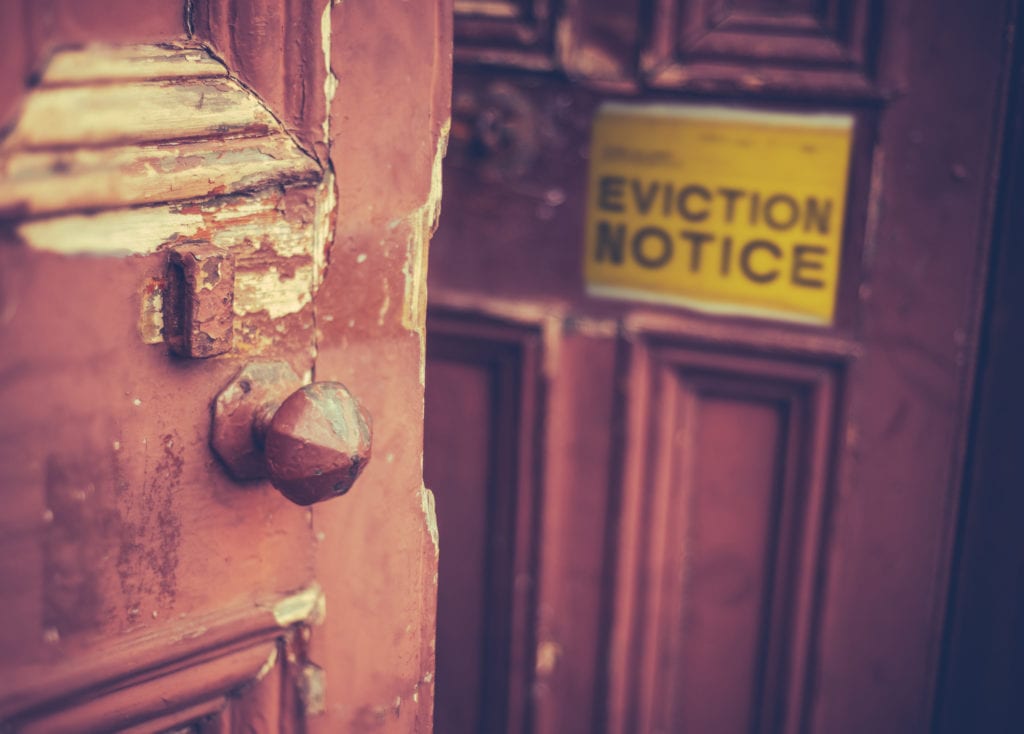
Real estate agent sitting at the desk by the window and passing keys to his client in the office
If you’re a landlord, you might have been in certain situations when a once-great relationship with your tenant started turning sour. There are usually many reasons this situation happens. This may stem from their non-compliance with your property’s written policies on noise and drinking habits. It might also be because they’ve kept missing their rental payments but continue to occupy your property.
The latter scenario usually ends up with your tenant turning into a squatter. Most of the time, having squatters within your property isn’t a convenient situation to be in, and handling it on your own can be difficult. You might need the help of the authorities or home-buying companies, like Time Worthy Property Solutions to help you sell your property even in this difficult situation.
This is only one of the many ways to handle situations when tenants become squatters. If you’re wondering if there are options available, the good news is, there’s plenty. This article will provide you insights as to how you can deal with them properly.
Holdover Tenant Defined
Before you take any action, it’s important to analyze the situation you’re in first. It’s because tenant-turned-squatter scenarios aren’t as easy as they seem to be.
A holdover tenant is someone who insists on staying in your property even if their lease or rental agreement with you has expired. Although their lease has expired, it doesn’t mean that they aren’t welcome there anymore. This is because they’re still left with the option of continuing to stay in your property and pay you, until you post a notice that they’ve been evicted.
As long as there’s no eviction notice yet, it should be clear that they can’t be called squatters and are still legally allowed to remain in the rental property.
On the other hand, tenants can turn into squatters once they stop paying you but choose to stay in your property. Dealing with the second scenario is the focus of this article.
How To Deal With Tenant-Turned-Squatter Scenarios
You might think that cutting off electricity and utilities or threatening your previous tenants are the best ways to deal with cases like this. However, this approach won’t work because depending on the state you’re in, these are considered illegal acts and come with serious repercussions.
What you need to know, however, is that there are lawful ways to go over these concerns. One is selling your house even with your tenants around. There are other tips you can use when you find yourself in this situation. Here are four of them.
- Start The Eviction Process As Soon As Possible
Upon learning that former tenants or squatters are living in your property, you should take immediate action to have them legally evicted. This is to avoid the consequences of the law on adverse possession.
Laws may vary depending on the state. Generally speaking, however, adverse possession allows a squatter to acquire ownership of your property if their possession of such meets the different circumstances provided by the law. One of these circumstances includes the actual and exclusive possession of a property for a certain number of years. Thus, if you won’t take the necessary steps to give them proper notice, this might be used as a basis for their rights on adverse possession.
- Provide Them With Other Options
Though some might think that it’s counterproductive, offering your previous tenants a few options other than eviction can also be helpful. There are cases when a tenant starts squatting in your property because of losing their jobs, leaving them without an idea where and how to start. If you have extra cash, why not offer them a cash incentive so they can finally leave your property in peace?

Grungy Old Door With A Yellow Eviction Notice
You can also entertain the option of offering them another rental agreement. This is a win-win scenario if both of you agree to the terms and conditions.
- Put Everything On Paper
You have to keep clear documentation of all the agreements and arrangements you’ve had in resolving the dispute. They may come in handy by the time legal proceedings commence.
- Call The Authorities If Necessary
Despite the efforts of keeping a professional and civilized approach, things can get ugly and go beyond your control as a landlord. In this scenario, it’s best to call the local authorities to assist you in requesting your former tenants to vacate.
Also, by asking the police to come over, you can secure a piece of evidence and documentation. This will support your claim that necessary actions have been taken in keeping your property secure from unwanted possession or acquisition.
Final Thoughts
There are instances that when your responsibility as a landlord goes beyond ensuring that your properties are well-maintained and collecting monthly payments. These include debacles with former tenants who become squatters on your property. In cases like these, be prepared with your options of starting a formal eviction process and offering them alternative arrangements.
It’s also a good practice to ensure that you have everything documented. In case things get out of hand, know that you can always call the cops for assistance. Remember that although squatters have their rights, you have yours too. Use these rights properly and who knows, things might go smoothly after coming to a settlement or agreement with your tenants.

